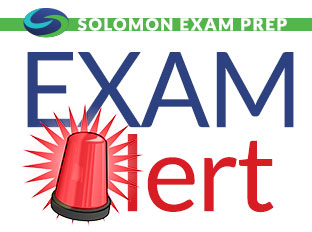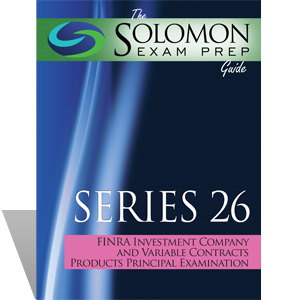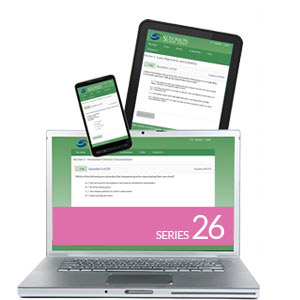This month’s study question from the Solomon Online Exam Simulator question database is now available! Relevant to the Series 6, 7, 24, 26, 62, and 82. –ANSWER POSTED– Continue reading
This month’s study question from the Solomon Online Exam Simulator question database is now available!
***Submit your answer to info@solomonexamprep.com to be entered to win a $10 Starbucks gift card.***

Question (Relevant to the Series 6, Series 7, Series 24, Series 26, Series 62, and Series 82): Which of the following would most likely be classified as a branch office?
Answers:
A. The floor of a registered exchange
B. A vacation home where the registered representative works for 45 business days a year
C. A customer service office where no sales activities are conducted
D. A location used primarily for non-securities activities and from which 25 securities transactions are effected a year
Correct Answer: B. A vacation home where the registered representative works for 45 business days a year
Rationale: A branch office is any location where one or more associated employees is in the business of soliciting or effecting (but not executing) the purchase or sale of any security.
A location outside of a primary residence, for example, a vacation home, is considered a non-branch location as long as it is used for securities business fewer than 30 business days per year.
The floor of a registered exchange is also considered a non-branch office if it is where a member firm conducts business with public customers.
Other examples of non-branch offices include:
- Any location that is used primarily to engage in non-securities activities and from which the associated persons effect no more than 25 securities transactions in any one calendar year (provided that any retail communication identifying such location also sets forth the address and telephone number of the location from which the associated persons conducting business at the non-branch locations are directly supervised)
- Any office location established solely for customer service and/or back office type functions where no sales activities are conducted
Congratulations to Alexa M. this month’s Study Question of the Month winner!






